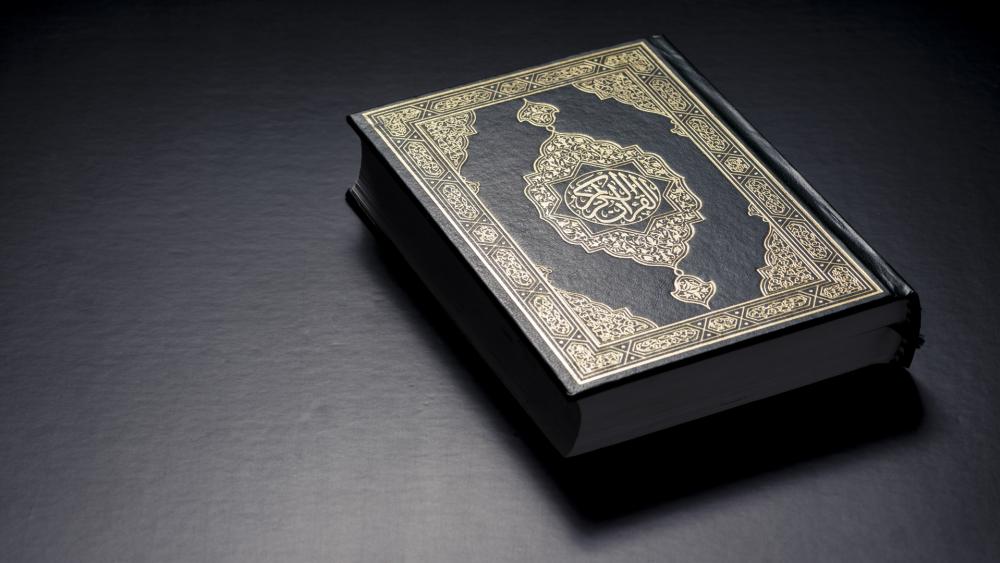"Fatiha Süresi Arapça Türkçe Anlamı FAZİLETLERİ SIRLARI Tefsiri .Fatiha Suresinin İsimleri Nelerdir ?FATİHA SURESİ Okuyanların Başına Gelecek Güzellikler.Fatiha Suresi Namazda Nasıl Okunur ? Fatiha Suresi Dinlemek Fatiha Suresi Kuranda Nerede Geçer ?Fatiha Suresi Duamıdır ?Fatiha Suresi Cenazelerde Dua Niyetine Okunabilirmi? Fatiha Suresi Hakkında Hadis-i Şerifler .Peygamberimiz Ve Alimler Fatiha Suresi Hakkında Ne Dediler ? Fatihasız Namaz Olurmu ? Fatiha Suresi Hakında Bilmediğiniz Birçok Bilgi www.fatihasüresi.com Sitesinde Bulabilirsiniz.Kaynaklı Bilgilere Yer Verilmektedir.Ayrıca Ayetel Kürsi Hakkında Tüm Bilinen Ve Bilinmeyenleri Faziletleri Arapça Türkçe Ve Anlamı Birçok Bilgi www.fatihasüresi.com da
The Quran romanized: al-Qurʼān, lit. 'the recitation', Arabic pronunciation, likewise romanized Qur' an or Koran, is the main spiritual text of Islam, thought by Muslims to be a discovery from God (Allah). It is commonly considered the finest work in classical Arabic literature. A little shorter than the New Testimony, [16] it is arranged in 114 chapters, or sur (سور; singular: سورة, sūrah)-- not according to chronology or subject, however according to length of surahs (with some exceptions). Surah are subdivided into verses, or āyāt (آيات; particular: آية, āyah). Muslims believe that the Quran was orally exposed by God to the final prophet, Muhammad, through the archangel Gabriel incrementally over a duration of some 23 years, starting on 22 December 609 CE, when Muhammad was 40; and concluding in 632, the year of his death. Muslims concern the Quran as Muhammad's most crucial miracle; a proof of his prophethood; and the conclusion of a series of magnificent messages beginning with those exposed to Adam, consisting of the Tawrah (Torah), the Zabur (" Psalms") and the Injil (" Gospel"). The word Quran occurs some 70 times in the text itself, and other names and words are also stated to refer to the Quran.
The Quran is thought by Muslims to be not just divinely inspired, however the literal word of God.Muhammad did not write it as he didn't know how to write. According to tradition, numerous of Muhammad's companions served as scribes, recording the discoveries. Quickly after the prophet's death, the Quran was put together by the buddies, who had actually documented or memorized parts of it.Caliph Uthman developed a basic version, now called the Uthmanic codex, which is usually considered the archetype of the Quran known today. There are, nevertheless, alternative readings, with mostly small distinctions in significance.
The Quran presumes familiarity with significant narratives stated in the Scriptural and apocryphal bibles. It summarizes some, dwells at length on others and, sometimes, provides alternative accounts and interpretations of events.The Quran explains itself as a book of guidance for humanity. It often provides in-depth accounts of specific historical occasions, and it often stresses the ethical significance of an event over its narrative sequence. Supplementing the Quran with descriptions for some cryptic Quranic stories, and judgments that likewise supply the basis for sharia in most denominations of Islam, are hadiths-- oral and written traditions thought to describe words and actions of Muhammad Throughout prayers, the Quran is recited just in Arabic.

Somebody who has memorized the entire Quran is called a hafiz. An ayah (Quranic verse) is often recited with a special sort of elocution booked for this function, called tajwid. During the month of Ramadan, Muslims normally finish the recitation of the entire Quran during tarawih prayers. In order to theorize the significance elham of a particular Quranic verse, the majority of Muslims rely on exegesis, or commentary (tafsir).
The word qurʼān appears about 70 times in the Quran itself, presuming different meanings. It is a spoken noun (maṣdar) of the Arabic verb qaraʼa significance 'he read' or 'he recited'. The Syriac equivalent is qeryānā (ܩܪܝܢܐ), which describes 'bible reading' or 'lesson'. While some Western scholars think about the word to be stemmed from the Syriac, most of Muslim authorities hold the origin of the word is qaraʼa itself Regardless, it had actually become an Arabic term by Muhammad's lifetime. A crucial significance of the word is the 'act of reciting', as reflected in an early Quranic passage: "It is for United States to collect it and to recite it (qurʼānahu).".
In other verses, the word refers to 'a private passage recited [by Muhammad]. Its liturgical context is seen in a number of passages, for example: "So when al-qurʼān is recited, listen to it and keep silent." [35] The word might likewise presume the meaning of a codified scripture when mentioned with other scriptures such as the Torah and Gospel.
The term likewise has carefully related synonyms that are employed throughout the Quran. Each synonym has its own unique meaning, but its use may assemble with that of qurʼān in specific contexts. Such terms include kitāb (' book'), āyah (' indication'), and sūrah (' scripture'); the latter 2 terms also denote units of revelation. In the large bulk of contexts, normally with a guaranteed short article (al-), the word is referred to as the waḥy (' discovery'), that which has been "sent down" (tanzīl) at intervals. Other associated words include: dhikr (' remembrance'), utilized to describe the Quran in the sense of a suggestion and caution; and ḥikmah (' wisdom'), sometimes describing the discovery or part of it.